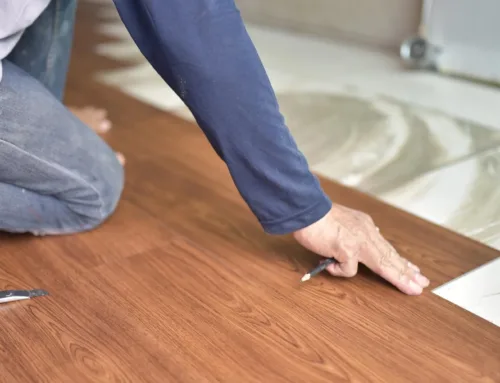The topic of “Water-Based vs. Oil-Based Polyurethane Floor Finish” is straightforward and concise. I will now provide a detailed discussion of this subject. Firstly, let’s establish my credibility and why you should consider my hardwood flooring information as reliable and applicable. Many sources you come across are written by unqualified individuals who often provide misinformation due to ulterior motives.
About the Author of “Water-Based vs. Oil-Based Polyurethane Hardwood Floor Finish”
My name is Allan, and I have owned a residential company, a gym flooring company, and currently operate as a hardwood flooring distributor (Boise flooring store & Spokane flooring store). Although I am no longer listed in their books due to discontinuing my subscription, I have obtained the following credentials, having successfully completed the courses:
- Former NWFA Install Certification
- Former NWFA Sand & Finish Certification
- MFMA (gym flooring) Certification
- Aacer Certification
- Loba Certification
- Arboritec Certification
- Basic Coatings Certification
- Duraseal Stain theory
Over a span of eight years, I personally installed, sanded, and finished various properties, including homes, gyms, and even decks. To ensure high-quality work, I hired a salesperson and worked alongside the crews. Gym floors were exclusively handled by my father and me.
Facts about Oil-Based Polyurethane
Oil-Based Polyurethane is an older type of finish that has withstood the test of time. It is what most people envision when thinking of wood floors. This finish provides a rich and deep look, enhancing the colors and creating pronounced contrast throughout the boards. Its unmatched clarity and thickness contribute to a remarkable depth.
Pros:
- Unmatched clarity
- Enhances floor stain colors
- Excellent chemical and water resistance
- Easy application
- No mixing required
Cons:
- Turns yellow after prolonged sun exposure
- Longer drying time
- Strong odor for the first 3-5 days
- Not compatible with white or gray color stains
Facts about Water-Based Polyurethane
Water-based floor finishes are relatively new to the market but have proven to be reliable, offering a distinct appearance compared to oil-based polyurethane finishes. If you desire a floor that maintains its color and appears flat without a visible coating, water-based hardwood floor finish is an excellent choice. However, it requires more effort during application and typically dries quickly. For optimal durability, opt for a reputable 2-part water-based finish. Keep in mind that water-based finishes come in various grades of quality.
Pros:
- Quick drying
- Little to no yellowing over time
- Compatible with white and gray stains
Cons:
- Less chemical resistance
- Varying qualities of finish (not all are equal)
- Thinner consistency
- Inferior water resistance
Conclusion of the “Water-Based vs. Oil-Based Polyurethane Hardwood Floor Finish” Debate
Ultimately, the decision boils down to a few key factors:
- Are you staining the floor a medium to dark color?
- If yes, choose oil-based polyurethane.
- If no, opt for water-based polyurethane.
- Do you want your floor to have a yellow tint?
- If yes, go with oil-based polyurethane.
- If no, select water-based polyurethane.
- Is the floor unstained and composed of Hickory, American cherry, Brazilian cherry, or Birch?
- In this case, oil-based polyurethane is recommended as it brings out the natural colors and develops a pleasing appearance over time.
- Do you want a deep rich color?
- Oil-based is the only thing to really give a deep rich color.
Remember that yellowing occurs gradually, and when the floor becomes significantly yellow or orange, it is likely time for a resanding.
Author Profile
- I have worked in hardwood flooring for the last 8 years. Use to run a company of residential crews as well as a company with gym flooring. If you need floor installation or refinishing help, I should have an answer or at least get you in the right direction.
Latest entries
 FlooringJanuary 15, 2026Does New Hardwood Flooring Increase Your Home Value?
FlooringJanuary 15, 2026Does New Hardwood Flooring Increase Your Home Value? FlooringJanuary 14, 2026Can You Refinish Engineered Hardwood?
FlooringJanuary 14, 2026Can You Refinish Engineered Hardwood? FlooringJanuary 10, 2026What Wood Floor Color Do I Choose?
FlooringJanuary 10, 2026What Wood Floor Color Do I Choose? FlooringJanuary 9, 2026How To Prevent Hardwood Floor Moisture Problems?
FlooringJanuary 9, 2026How To Prevent Hardwood Floor Moisture Problems?




